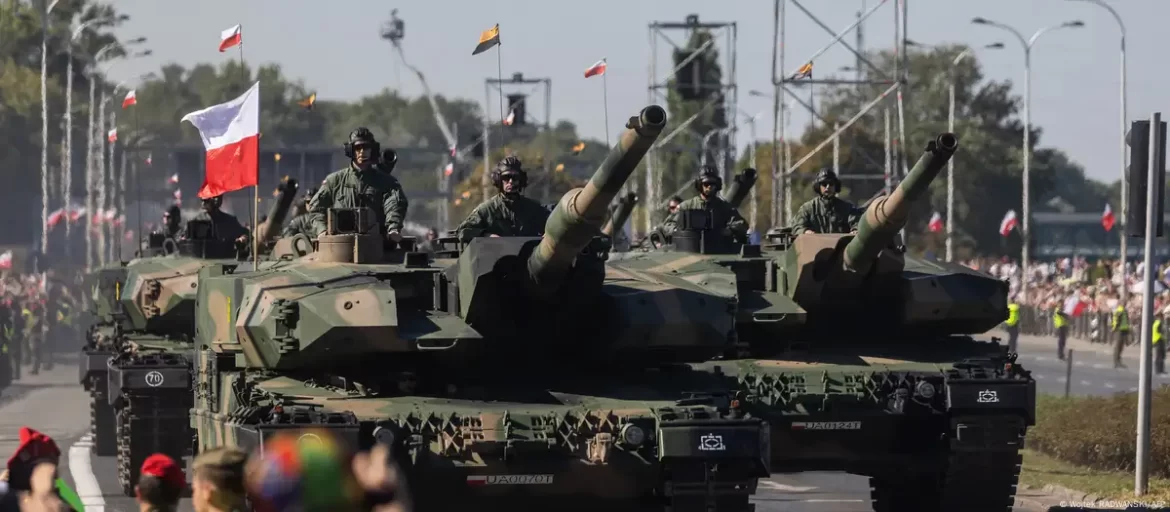April 28, 2025 — In a landmark announcement, the Stockholm International Peace Research Institute (SIPRI) has reported that global military spending reached a record $2.72 trillion in 2024, marking the highest figure ever recorded. This represents a 9.4% increase over 2023, the largest year-on-year rise since the end of the Cold War. The new data signals a world increasingly focused on security and defense amid escalating geopolitical tensions, regional conflicts, and an uncertain global order.
According to SIPRI’s annual report released Monday, every region of the world contributed to the surge. Europe saw the most dramatic increase, with defense budgets climbing by an unprecedented 17% compared to the previous year. This surge was fueled largely by the ongoing war in Ukraine, growing fears in Eastern Europe about Russian aggression, and broader concerns regarding global stability.
“The global increase in military spending in 2024 is a direct reflection of a rapidly deteriorating international security environment,” said Nan Tian, Senior Researcher at SIPRI’s Military Expenditure and Arms Production Programme. “Countries are prioritizing military strength as a means of securing national interests amid rising threats.”
In Eastern Europe, military spending figures were particularly striking. Russia’s defense budget rose by 38% in 2024 to reach $149 billion, making up 7.1% of the nation’s GDP and accounting for a fifth of total government expenditure. Russia’s aggressive buildup is seen as both a response to its ongoing conflict in Ukraine and a broader effort to bolster its position globally.
Meanwhile, Ukraine’s defense expenditures reached $64.7 billion, comprising a staggering 34% of its GDP—the highest proportion globally. Despite substantial international aid, the figure highlights the enormous burden of prolonged conflict on national economies and civilian infrastructure.
The United States continued to lead the world in military spending, with its defense budget rising 5.7% to $997 billion—amounting to 37% of total global military expenditures. Washington’s focus has shifted increasingly toward countering strategic rivals such as China and Russia, investing heavily in next-generation technologies, cybersecurity, and modernization of its armed forces.
China, the world’s second-largest military spender, also increased its budget, allocating $314 billion to defense. Although China’s spending growth was more moderate compared to previous years, the steady rise underscores its long-term ambitions to enhance regional influence and build a military capable of matching that of the United States.
Notably, Germany moved into the fourth position globally for military spending, with a record-high allocation of $88.5 billion, reflecting a 28% increase over 2023. Germany’s jump illustrates a broader trend among NATO countries, many of which are now meeting or exceeding the alliance’s defense spending targets amid renewed security concerns in Europe.
In the Middle East, Israel reported a staggering 65% increase in its military budget, reaching $46.5 billion—the largest percentage rise globally. This sharp escalation is linked to continuing conflicts in the region and growing security concerns, including tensions with Iran and developments across neighboring territories.
Elsewhere in Asia, India maintained its position among the top military spenders, while Japan registered a notable increase in defense outlays following its decision to double defense spending over the next five years. The Asia-Pacific region’s security landscape continues to evolve rapidly, shaped by disputes in the South China Sea, Taiwan Strait tensions, and broader US China competition.

While the numbers reflect a new emphasis on military preparedness, SIPRI analysts warned about the long-term economic and social consequences of ever-rising defense budgets. Many countries are grappling with economic slowdowns, inflation, and mounting public debt, and increased defense spending often comes at the expense of social programs, healthcare, education, and climate initiatives.
“While the desire for security is understandable, excessive focus on military buildup can undermine the broader wellbeing of societies,” noted Tian. “There is a real risk that growing defense budgets could erode the resources needed for economic recovery and development.”
SIPRI’s report calls for renewed diplomatic efforts to resolve conflicts and stresses the importance of arms control measures to curb the ongoing arms race.
The 2024 figures suggest that the world is entering a new era of militarization, with security concerns outweighing economic caution in many capitals. Experts suggest that unless major powers prioritize dialogue and conflict resolution, global military expenditures are likely to continue rising in the coming years.
As tensions simmer across Eastern Europe, the Middle East, and Asia, SIPRI’s findings serve as a stark reminder that the cost of insecurity is not just measured in dollars but in the fragile prospects for global peace and stability.
- ASEAN Secy-General lauds Indian Parliament’s engagement in promoting inter-parliamentary dialogue
- At Least 100 Dead as Floods Hit Eastern Democratic Republic of Congo
- Oman Welcomes US-Yemen Ceasefire Pact as Key Step Towards Peace
- World is looking to invest in Indian Media Industry: Chris Ripley, President & CEO Sinclair chane
- France expresses strong support for India against terrorism, trade ties deepen: Piyush Goyal
- “Terror has no place in our countries”: All-party delegation member Shashi Tharoor on Colorado “terror attack”

